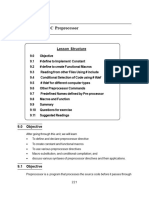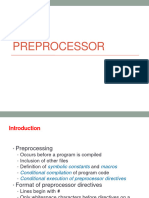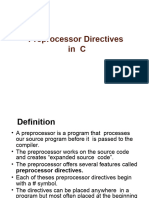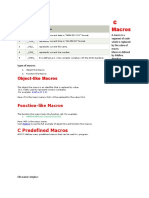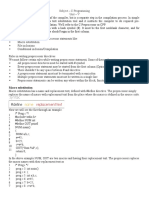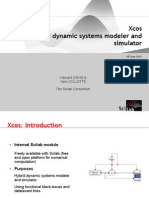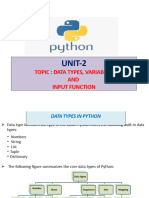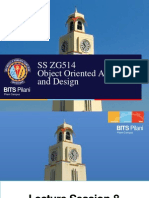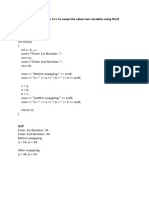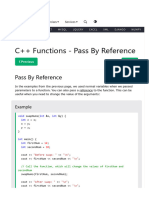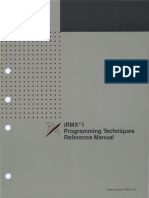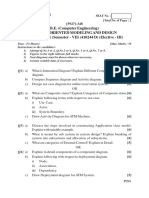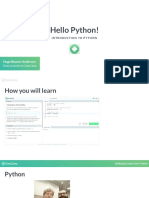0% found this document useful (0 votes)
17 views15 pagesC Preprocessor
The C Preprocessor modifies source code before compilation, performing functions such as macro substitutions, conditional compilation, and file inclusion. It enhances program readability, portability, and efficiency while facilitating testing and debugging. Preprocessor directives, which start with '#', include commands like #define, #include, and #if, and are essential for managing code behavior during compilation.
Uploaded by
23ec043Copyright
© © All Rights Reserved
We take content rights seriously. If you suspect this is your content, claim it here.
Available Formats
Download as PPS, PDF, TXT or read online on Scribd
0% found this document useful (0 votes)
17 views15 pagesC Preprocessor
The C Preprocessor modifies source code before compilation, performing functions such as macro substitutions, conditional compilation, and file inclusion. It enhances program readability, portability, and efficiency while facilitating testing and debugging. Preprocessor directives, which start with '#', include commands like #define, #include, and #if, and are essential for managing code behavior during compilation.
Uploaded by
23ec043Copyright
© © All Rights Reserved
We take content rights seriously. If you suspect this is your content, claim it here.
Available Formats
Download as PPS, PDF, TXT or read online on Scribd
/ 15


